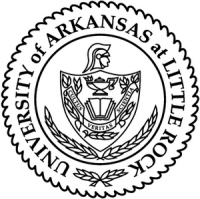-
Antarctica Remains the Wild Card for Sea-Level Rise Estimates
Estimates show that limiting global warming to 1.5 degrees C above pre-industrial temperatures would cut projected 21st century sea-level rise from land ice in half, relative to currently pledged emissions reductions.
-
-
Protecting Critical Energy Infrastructure
Increasingly, both Israel and the U.S. face costly cyberattacks that can cause severe damage to critical energy infrastructure. A new consortium will develop, integrate, and test technologies, and demonstrate high value cyberattack mitigation technologies on the energy infrastructure, using data analytics, artificial intelligence, and machine learning.
-
-
Improving Grid Reliability in the Face of Extreme Events
The nation’s power grid remains vulnerable to disruption from extreme events including wildfires, severe storms, and cyberattacks. Variable generation resources and load volatility also present operational challenges to grid stability. To mitigate disruptions before they snowball, grid planners and operators must be able to see these events coming and understand their potential impacts on grid reliability.
-
-
Triggering Rain Where Water Is Scarce
A new method to trigger rain where water is scarce is being tested in the UAE, using drones. The drones carry an electric charge that is released into a cloud, giving cloud droplets the jolt they need to clump together and fall as rain.
-
-
Nuclear Micro-Reactors
The idea of a nuclear power plant today evokes images of large cooling towers and expansive, warehouse-size buildings. Such facilities generate about a fifth of electricity in the United States without emitting greenhouse gases. A different picture of nuclear energy is emerging, however, in the form of micro-reactors that could fit on the back of a truck or inside a rocket to space. The promise of these micro-reactors is to provide the same reliable, zero-carbon power in remote settings or to support electrical power grid recovery.
-
-
Entire U.S. West Coast Now Has Access to ShakeAlert Earthquake Early Warning
After fifteen years of planning and development, the ShakeAlert earthquake early warning system is now available to more than fifty million people in California, Oregon and Washington, the most earthquake-prone region in the conterminous U.S.
-
-
Mapping Local Earthquake Risks from Eagle Ford Fracking
Scientists simulated the local risk of damaging or nuisance-level shaking caused by hydraulic fracturing across the Eagle Ford shale formation in Texas. The results could inform a new approach to managing human-caused earthquakes.
-
-
Increasing U.S. Production of Rare Earth Elements
The U.S. Department of Energy (DOE) the other day awarded $19 million for 13 projects in traditionally fossil fuel-producing communities across the country to support production of rare earth elements and critical minerals vital to the manufacturing of batteries, magnets, and other components important to the clean energy economy.
-
-
Antarctic Ice-Sheet Melting to Lift Sea Level Higher Than Thought: Study
Global sea-level rise associated with the possible collapse of the West Antarctic Ice Sheet has been significantly underestimated in previous studies, meaning the sea level in a warming world will be greater than anticipated, according to a new study. New calculations show the rise due to warming would be 30 percent above forecasts.
-
-
The SolarWinds Hack Was All but Inevitable – Why National Cyber Defense Is a “Wicked” Problem and What Can Be Done about It

Software supply chains are vulnerable to hackers: Many U.S. companies outsource software development because of a talent shortage, and some of that outsourcing goes to companies in Eastern Europe that are vulnerable to Russian operatives. One problem is that U.S. national cyber defense is split between the Department of Defense and the Department of Homeland Security, which leaves gaps in authority. There are no easy solutions to shoring up U.S. national cyber defenses.
-
-
Cybersecurity Curriculum, Pilot Focused on Veterans and First Responders

The University of Arkansas at Little Rock is part of a coalition of universities and industry partners that are developing a curriculum to increase cybersecurity talent focused on health care with $6.3 million in funding from the National Security Agency. The curriculum focuses on health care cybersecurity.
-
-
In the Wake of SolarWinds: Making and Breaking a Rules-Based Global Cyber Order
We should recognize that the need to make careful distinctions between different categories of cyber operations, and shun the use of emotive and misleading language about “attacks,” should also be extended to the field of political influence via the internet. Using cyberspace to spread propaganda, influence political outcomes and reveal or invent damaging information is an extension of tactics that have been used in different ways for millennia—including by the U.S. Actually trying to rig U.S. elections by tampering with the count online would be completely different and vastly more serious.
-
-
California's Wildfire Season Has Lengthened, and Its Peak Is Now Earlier in the Year
California’s wildfire problem, fueled by a concurrence of climate change and a heightened risk of human-caused ignitions in once uninhabited areas, has been getting worse with each passing year of the 21st century.Researchers have found that the annual burn season has lengthened in the past two decades and that the yearly peak has shifted from August to July.
-
-
New Dashboard Allows U.S.-Mexico Supply Chain Analytics
A new web-based dashboard is designed to predict COVID-19 threats to supply chains, share data and foster analysis. The research provides real-time risk analysis for COVID-19’s potential impacts on trade.
-
-
U.K.'s First Recycling Plant for High-Performance Rare Earth Magnets to Open
The U.K.’s first re-manufacturing line for high-performance sintered rare earth magnets for use in electric vehicles, aerospace, renewable energy technologies and low carbon technologies will be developed by the University of Birmingham.
-
More headlines
The long view
Water Wars: A Historic Agreement Between Mexico and US Is Ramping Up Border Tension
As climate change drives rising temperatures and changes in rainfall, Mexico and the US are in the middle of a conflict over water, putting an additional strain on their relationship. Partly due to constant droughts, Mexico has struggled to maintain its water deliveries for much of the last 25 years, deliveries to which it is obligated by a 1944 water-sharing agreement between the two countries.
Trump Is Fast-Tracking New Coal Mines — Even When They Don’t Make Economic Sense
In Appalachian Tennessee, mines shut down and couldn’t pay their debts. Now a new one is opening under the guise of an “energy emergency.”
Smaller Nuclear Reactors Spark Renewed Interest in a Once-Shunned Energy Source
In the past two years, half the states have taken action to promote nuclear power, from creating nuclear task forces to integrating nuclear into long-term energy plans.
Keeping the Lights on with Nuclear Waste: Radiochemistry Transforms Nuclear Waste into Strategic Materials
How UNLV radiochemistry is pioneering the future of energy in the Southwest by salvaging strategic materials from nuclear dumps –and making it safe.
Model Predicts Long-Term Effects of Nuclear Waste on Underground Disposal Systems
The simulations matched results from an underground lab experiment in Switzerland, suggesting modeling could be used to validate the safety of nuclear disposal sites.
